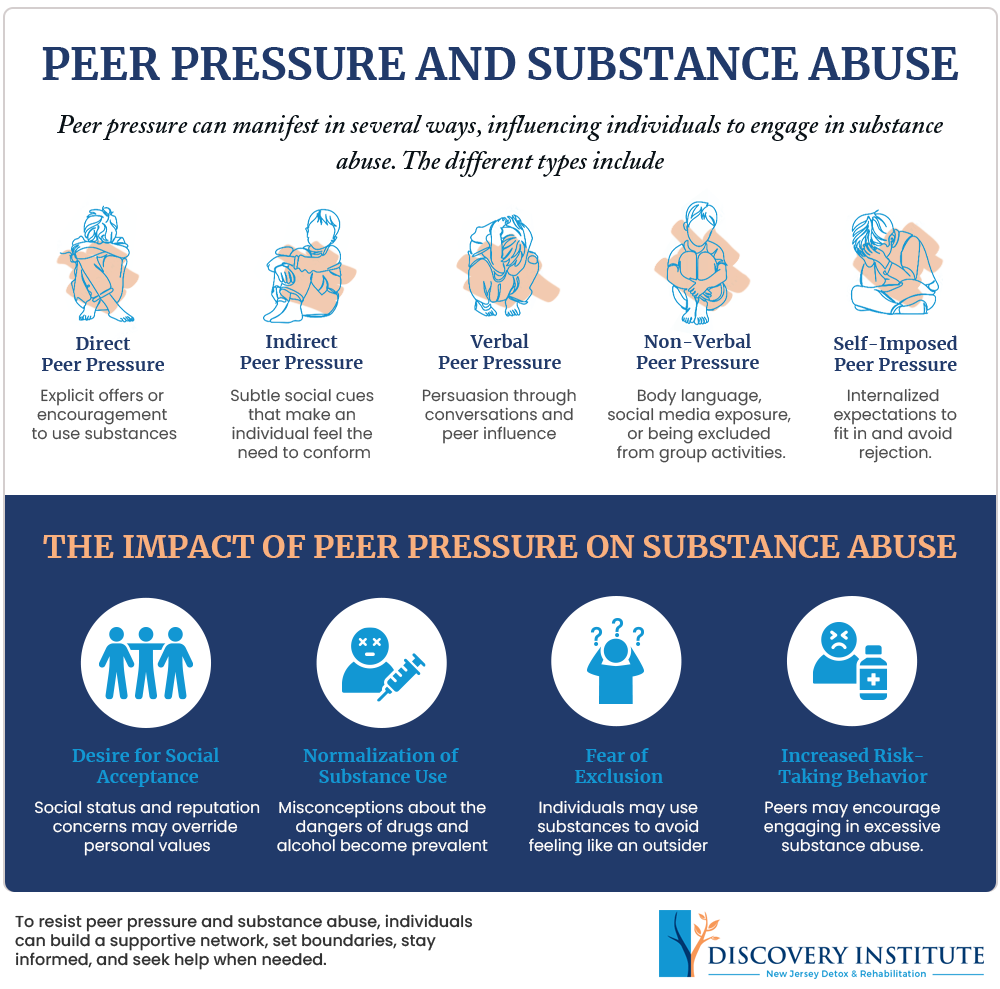 You’re heading off to college for the first time. The excitement and anticipation of newfound freedom and independence are intoxicating. According to the New Jersey Department of Health and Senior Services Drug and Alcohol Abuse Report, the state has more than 60,000 drug treatment admissions annually. Of all treatment admissions, 42% reported heroin as one of the most commonly abused drugs, while 13% reported having a cocaine addiction, and 9% reported having a marijuana addiction.
You’re heading off to college for the first time. The excitement and anticipation of newfound freedom and independence are intoxicating. According to the New Jersey Department of Health and Senior Services Drug and Alcohol Abuse Report, the state has more than 60,000 drug treatment admissions annually. Of all treatment admissions, 42% reported heroin as one of the most commonly abused drugs, while 13% reported having a cocaine addiction, and 9% reported having a marijuana addiction.
In 2020, it’s notable that one in every eight young adults had engaged in illegal drug use, and a significant 43% of college students were involved in drug abuse. In light of these statistics, it is critical to recognize and comprehend the risks involved. Peer pressure and the desire to fit in are powerful forces, especially at this stage of life. The pressure to engage in risky behavior in exchange for social rewards can lead even the most level-headed students down a dangerous path.
At Discovery Institute in Marlboro, New Jersey, our rehab facility explores the importance of peer pressure and substance abuse and provides treatment programs and therapy services to effectively manage behavioral health issues.
What is Peer Pressure?
As the summer draws to a close and August approaches, college students across the country are preparing to head back to school. While many people associate peer pressure and substance abuse with high school students, it is equally important to address these issues within the college student population.
Peer pressure is a form of social influence that can have a significant impact on the behaviors and decisions of college students. In a new environment, college students may feel the need to fit in and be accepted by their peers. This desire to belong can make individuals more susceptible to peer pressure, particularly when it comes to substance abuse.
Substance abuse among college students is a prevalent issue that can have devastating effects on individuals, their families, and the broader campus community. The availability and accessibility of alcohol and drugs, combined with the desire for social acceptance, can create an environment that encourages risky behaviors.
How Does Peer Pressure Contribute to Substance Abuse?

When it comes to substance abuse, peer pressure can be a significant contributor. Many individuals, particularly adolescents and young adults, may feel pressure to engage in substance use to fit in or be accepted by their peers. This pressure can come in various forms, such as direct persuasion or more subtle social cues.
In some cases, individuals may feel obliged to use substances to maintain their social status or reputation within a certain group. The fear of being rejected or excluded can be a powerful motivator for engaging in substance abuse, even if the individual may not have a personal desire to do so.
Additionally, peer pressure can create a sense of normalization around substance use. If individuals within a person’s social circle are regularly using substances, it can create the perception that substance use is normal and acceptable behavior. This normalization can make it more difficult for individuals to resist the temptation to engage in substance abuse.
Furthermore, peer pressure can also play a role in shaping attitudes and beliefs about substance use. When individuals are constantly exposed to peers who engage in substance abuse, it can influence their perception of the risks and consequences associated with such behavior. This can lead to a skewed understanding of the potential harm that substance abuse can cause, further increasing the likelihood of engaging in such behavior.
It is important to note that while peer pressure can be a significant contributing factor to substance abuse, it is not the sole cause. Substance abuse is a complex issue that is influenced by a combination of genetic, environmental, and psychological factors. Addressing peer pressure alone may not be sufficient in preventing or treating substance abuse, but it is an important aspect to consider in comprehensive prevention and intervention strategies.
What are Some Ways People Experience Peer Pressure to Use Substances?
In today’s society, there is a lot of peer pressure to use drugs and binge drink. It is far too easy to obtain both legal and illegal narcotics for recreational purposes. In the workplace, at school, in the neighborhood, or even at home, temptation can be present. Peer pressure can be direct, subtly applied, or harsh.
Many young individuals grow up in environments where alcohol or drug use is present. Those with Substance Use Disorder (SUD) might offer substances or tease others for not partaking. Even if discouragement is voiced, the behavior of substance users can lead to opposite effects.
Young adults often encounter drugs through friends in educational settings. The desire to “fit in” with peers can cause adolescents to give in to peer pressure and engage in substance use. College studies show that alcohol abuse and heavy consumption are common.
Peer pressure continues into adulthood. The social acceptance of alcohol means the temptation to consume or overconsume persists, particularly in professional contexts where alcohol is central to discussions and relationship-building.
A study highlights that some men feel their masculinity is challenged when abstaining from alcohol. Alcohol quantity and type are seen as markers of gender identity. Not drinking might also be linked to perceptions of financial status.
Non-drinkers often face stereotypes and may be labeled judgmental or boring. They struggle to engage in conversations or socialize with drinkers.
In general, peer pressure that results in substance use affects people of all ages and genders and occurs in a variety of contexts.
How Can Young Individuals Combat Peer Pressure and Drugs?
Peer pressure during the college years can be intense. Your friends suddenly have much more freedom and independence, and some may experiment with drugs or alcohol. How can you avoid following suit? Here are some tips to combat peer pressure and make healthy choices:
Connect with friends who share your values and goals. Their support can help strengthen your resolve. Look for new friends through campus organizations that promote a healthy lifestyle.
Confidence in your choices can help you stand your ground. If someone offers you substances or pressures you, firmly and politely decline. Use assertive phrases like “I appreciate the offer, but I’m choosing to stay substance-free” or “I’m not interested, thank you.”
Establish clear boundaries with your friends and acquaintances regarding your decision not to use drugs or alcohol. Let them know that you respect their choices but expect the same respect for yours. True friends will understand and support your boundaries.
Understanding the risks and consequences of substance use can strengthen your determination. Stay informed about
If friends pressure you to drink or use drugs at a party or hang out, propose doing something else instead, like going out for coffee, seeing a movie, exercising, or studying together. Having a plan in place makes it easier to resist.
Don’t feel obligated to attend events where drugs or alcohol will be prevalent just to fit in. It’s okay to miss out sometimes; your health and safety should be the priority.
Imagine the positive outcomes that come with maintaining a substance-free lifestyle. Visualizing your success, well-being, and accomplishment of your goals can reinforce your determination.
Break down your long-term aspirations into smaller, more achievable goals. These milestones provide a sense of accomplishment, reminding you of the progress you’re making toward a brighter future.
Connect with individuals who have successfully navigated peer pressure and remained substance-free. Their stories and experiences can provide insight and inspiration for your journey.
Speaking to a counselor, medical professional, or support group can help give you strategies and the motivation to avoid succumbing to peer pressure. Your health and future are worth the investment.
Combating peer pressure is challenging but necessary to avoid substance abuse and stay on a positive path. Believe in yourself, set boundaries, and don’t be afraid to ask for help. Surround yourself with a strong support system of people who share your commitment to well-being. Staying true to your values will build self-confidence from the inside out.
Receive Help for Addiction at Discovery Institute
 Are you a young college student facing the challenges of addiction? At the Discovery Institute, we understand the unique struggles that young adults like you may encounter. Our specialized addiction recovery program is designed to provide tailored support, empowering you to overcome substance abuse and regain control of your life.
Are you a young college student facing the challenges of addiction? At the Discovery Institute, we understand the unique struggles that young adults like you may encounter. Our specialized addiction recovery program is designed to provide tailored support, empowering you to overcome substance abuse and regain control of your life.
Through evidence-based therapies, individualized treatment plans, and a supportive community of peers, we’re here to guide you on the path to recovery. Our dedicated team of professionals is committed to addressing the physical, emotional, and psychological aspects of addiction to help you achieve long-lasting wellness.
Whether you’re dealing with alcohol, drugs, or any other addictive substances, our comprehensive program offers a safe and nurturing environment where you can heal and grow. Reach out to us today to embark on a transformative journey toward a brighter, substance-free future. Your healing begins here at the Discovery Institute.



